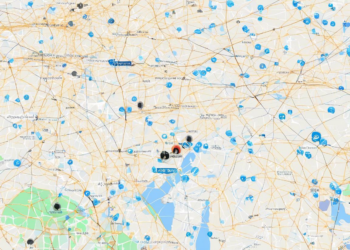How to Land an AI Annotation Job: Tips and Resources

The field of artificial intelligence (AI) is booming, and with it comes a growing demand for AI annotation specialists. If you’re looking to break into this exciting and rewarding career path, you’ve come to the right place. This comprehensive guide will provide you with all the information you need to land your dream AI annotation job, from understanding the fundamentals to mastering the essential skills.
What is AI Annotation?
At its core, AI annotation is the process of labeling and tagging data to train AI models. Think of it as teaching an AI system to recognize objects, understand language, or interpret images. Just like a child needs to learn the names of different colors and shapes, AI models require annotated data to develop their “understanding” of the world.
AI annotation is a crucial step in the development of various AI applications, including:
- Image recognition: Labeling objects, scenes, and people in images to train AI systems to identify them.
- Natural language processing (NLP): Annotating text with grammatical information, sentiment analysis, and entity recognition to enable AI to understand human language.
- Self-driving cars: Labeling road signs, lanes, and pedestrians in videos to teach AI models how to navigate roads safely.
- Medical diagnosis: Annotating medical images to help AI systems diagnose diseases with greater accuracy.
Types of AI Annotation Jobs
The AI annotation field offers a variety of job opportunities, each with its own unique set of responsibilities and skill requirements. Here are some common types of AI annotation jobs:
- Data Labeler: The most common role, data labelers are responsible for annotating large datasets of images, videos, text, or audio.
- Image Annotation Specialist: Focuses on labeling objects, regions, and boundaries in images for image recognition tasks.
- Video Annotation Specialist: Annotates actions, events, and objects in video footage for AI models used in self-driving cars, security systems, and more.
- Text Annotation Specialist: Tags and labels text with grammatical information, sentiment, entities, and other relevant information for NLP applications.
- Audio Annotation Specialist: Transcribes and labels audio data for speech recognition, voice assistants, and other AI-powered applications.
Benefits of an AI Annotation Career
Choosing a career in AI annotation comes with many advantages, making it an attractive option for individuals seeking a challenging and rewarding career path. Here are some of the key benefits:
- High Demand: The rapid growth of the AI industry has led to a surge in demand for AI annotation specialists.
- Remote Work Opportunities: Many AI annotation jobs are remote, providing flexibility and work-life balance.
- Flexible Schedule: Many annotation projects can be done on a freelance basis, allowing for flexible work hours and schedules.
- Variety of Industries: AI annotation is used in a wide range of industries, offering diverse career paths and potential for growth.
- Career Advancement: With experience and expertise, you can progress to higher-paying roles like project manager or data scientist.
Skills Required for AI Annotation Jobs
To be successful in AI annotation, you’ll need a combination of technical and soft skills. Here are some of the most important:
- Attention to detail: Accurate annotation requires meticulous attention to detail and the ability to identify subtle nuances in data.
- Strong computer skills: You’ll need to be proficient in using various software tools for annotation, data management, and quality control.
- Technical understanding: A basic understanding of AI concepts, data science, and machine learning is helpful for understanding the purpose and context of the annotation tasks.
- Communication skills: Effective communication is essential for collaborating with team members, project managers, and clients.
- Time management skills: You’ll need to manage your time effectively to meet deadlines and maintain consistent quality standards.
- Problem-solving skills: Being able to identify and troubleshoot issues during the annotation process is crucial.
- Language proficiency: For text annotation, fluency in the target language is essential.
How to Find AI Annotation Jobs
There are several avenues to explore when looking for AI annotation jobs:
- Online Job Boards: Popular platforms like Indeed, LinkedIn, and Upwork often list AI annotation job openings.
- Company Websites: Check the career sections of leading AI companies and those specializing in data annotation services.
- Freelancing Platforms: Platforms like Upwork, Fiverr, and Guru connect you with potential clients for freelance annotation projects.
- AI Communities and Forums: Join online communities and forums related to AI, machine learning, and data annotation to network and learn about job opportunities.
Tips for Success in AI Annotation
Once you’ve found a suitable AI annotation job, here are some tips to help you succeed:
- Understand the Project Requirements: Before starting any annotation task, carefully review the project guidelines and specifications to ensure you understand the expectations and quality standards.
- Use the Right Tools: Choose the right annotation tools based on the project requirements and your level of expertise. Many free and paid options are available, so explore your options and choose the one that best suits your needs.
- Maintain Consistency: Consistency in your annotation style and adherence to the project guidelines are crucial for achieving accurate and reliable results.
- Communicate Effectively: If you encounter any issues or have questions, don’t hesitate to communicate with your team members or project managers.
- Pay Attention to Feedback: Regularly review feedback on your work and make necessary adjustments to improve your annotation accuracy and efficiency.
- Continuously Learn: The field of AI is constantly evolving, so it’s important to stay up-to-date on new technologies, techniques, and best practices in AI annotation.
Resources for Learning AI Annotation
If you’re new to the field of AI annotation, there are many resources available to help you learn and develop the necessary skills:
- Online Courses: Platforms like Coursera, Udemy, and Udacity offer courses on AI annotation, data labeling, and related topics.
- Free Tutorials and Documentation: Many AI companies and organizations provide free tutorials, documentation, and guides on various aspects of AI annotation.
- Industry Blogs and Publications: Stay informed about the latest trends, best practices, and innovations in AI annotation by reading industry blogs and publications.
- Online Communities: Join online communities and forums related to AI, machine learning, and data annotation to connect with other professionals, ask questions, and learn from their experiences.
Conclusion
Landing an AI annotation job can be a rewarding experience, opening doors to a thriving and rapidly growing field. By understanding the fundamentals, acquiring the necessary skills, and utilizing the resources available, you can increase your chances of success in this exciting career path. Remember to stay informed about the latest industry trends, continuously learn and improve your skills, and network with other professionals in the field.
The demand for skilled AI annotation specialists will continue to rise in the years to come, making this a career path with promising future prospects. So, if you’re passionate about AI and data, take the leap and embark on your journey to becoming an AI annotation expert.












